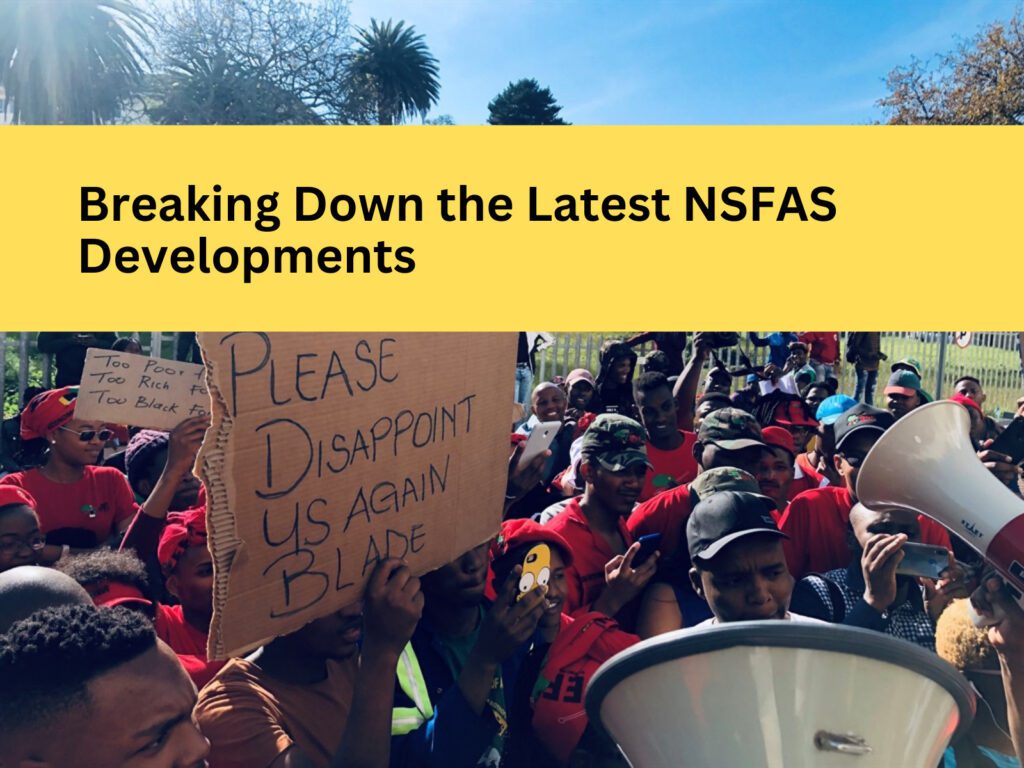Breaking Down the Latest NSFAS Developments

In a recent media briefing, Dr. Blade Nzimande, the Minister of Higher Education, Science and Innovation, addressed a range of important developments regarding the National Student Financial Aid Scheme (NSFAS). This scheme plays a critical role in providing financial assistance to deserving beneficiaries who seek tertiary education in South Africa. Dr. Nzimande discussed a variety of topics, from the scheme’s history and achievements to current challenges and future initiatives.
The Genesis of NSFAS
NSFAS was founded in 1999 to address the issue of financial access to higher education for deserving students. Dr. Nzimande emphasized the importance of NSFAS in breaking down the intergenerational social inequalities caused by decades of colonial and apartheid rule.
Impressive Growth in Funding
Over the years, NSFAS has significantly expanded its funding efforts. Since 1991, the funding has grown from R21.4 million to nearly R50 billion, demonstrating the government’s commitment to providing educational opportunities for working-class and underprivileged students.
Transition to a Student-Centered Model
One major milestone for NSFAS was transitioning to a student-centered model, where students directly apply for funding. This shift required considerable resource allocation and process reengineering to accommodate a substantial increase in student applications.
Current Accomplishments and Progress
Dr. Nzimande pointed out that NSFAS is currently the largest student funding agency in Africa and is unique globally in its comprehensive support, which includes study, travel, accommodation, and personal care allowances. Here are some key points regarding the recent accomplishments:
- In 2023, NSFAS is funding all qualifying students on the DHET bursary scheme who have been admitted to funded programs at public TVET colleges and universities.
- Over 1.1 million applications were received through the scheme’s online portal, with 156,700 coming from SASSA beneficiaries.
- NSFAS ensured upfront payments to institutions for registration, tuition fees, and living allowances to ensure that all beneficiaries could register without paying registration fees.
- An inflated linked increase of 5% on all allowances and a 10% increase on the living allowance were implemented.
Addressing Challenges
NSFAS has been working diligently to address various challenges. Dr. Nzimande detailed the measures taken, such as:
Improved Communications
- NSFAS staff members were deployed to institutions to assist with funding-related issues and data exchange processes.
- Dr. Nzimande emphasized the importance of improved communication and prompt responses to NSFAS inquiries.
Dealing with Misuse
- Dr. Nzimande issued a warning to students who are improperly benefiting from NSFAS, emphasizing that criminal and legal actions will be taken against those found defrauding the system.
Student-Centered Model and Accommodation Portal
NSFAS has been implementing the Student-Centered Model, which aims to streamline processes related to fund disbursement. Dr. Nzimande provided statistics on claims from university and TVET students, highlighting the achievements.
Onboarding Progress
- To illustrate the progress in onboarding students, Dr. Nzimande provided a breakdown of percentages of students onboarded by various universities.
Institutional Support and TVET Colleges
- Dr. Nzimande stressed that efforts to onboard students continue, especially for institutions with lower percentages.
- Collaboration with TVET colleges is ongoing due to multiple academic terms.
Investigation and Bank Charges
Dr. Nzimande discussed an ongoing investigation into the appointment of direct payment service providers. He also mentioned his directive to reconsider bank charges, with the goal of reducing costs for beneficiaries.
Appeals Process and Collaboration
NSFAS is collaborating with other government entities, such as SASSA and SARS, to verify all NSFAS applications and ensure proper processing. Dr. Nzimande also discussed the appeals process, including the outcomes of appeals received.
NSFAS Board and Appointments
Dr. Nzimande highlighted his meetings with the NSFAS Board and outlined directives for improvements, including the redesign of their ICT system, process reviews, governance and management enhancements, and new performance management frameworks. He also mentioned the appointment of new Board members to strengthen the organization.
Allowances Paid by NSFAS
Dr. Nzimande provided details about the allowances NSFAS pays to qualifying students, including university and TVET students, outlining the criteria and conditions.
Conclusion
In conclusion, Dr. Nzimande reiterated the government’s commitment to transforming the post-school education system to make it accessible to all, regardless of their financial background. He mentioned the impending announcement of the Comprehensive Student Funding Model, which will further expand educational opportunities.
The latest NSFAS developments are a testament to the government’s ongoing efforts to support students and provide equal access to quality education for all South Africans.